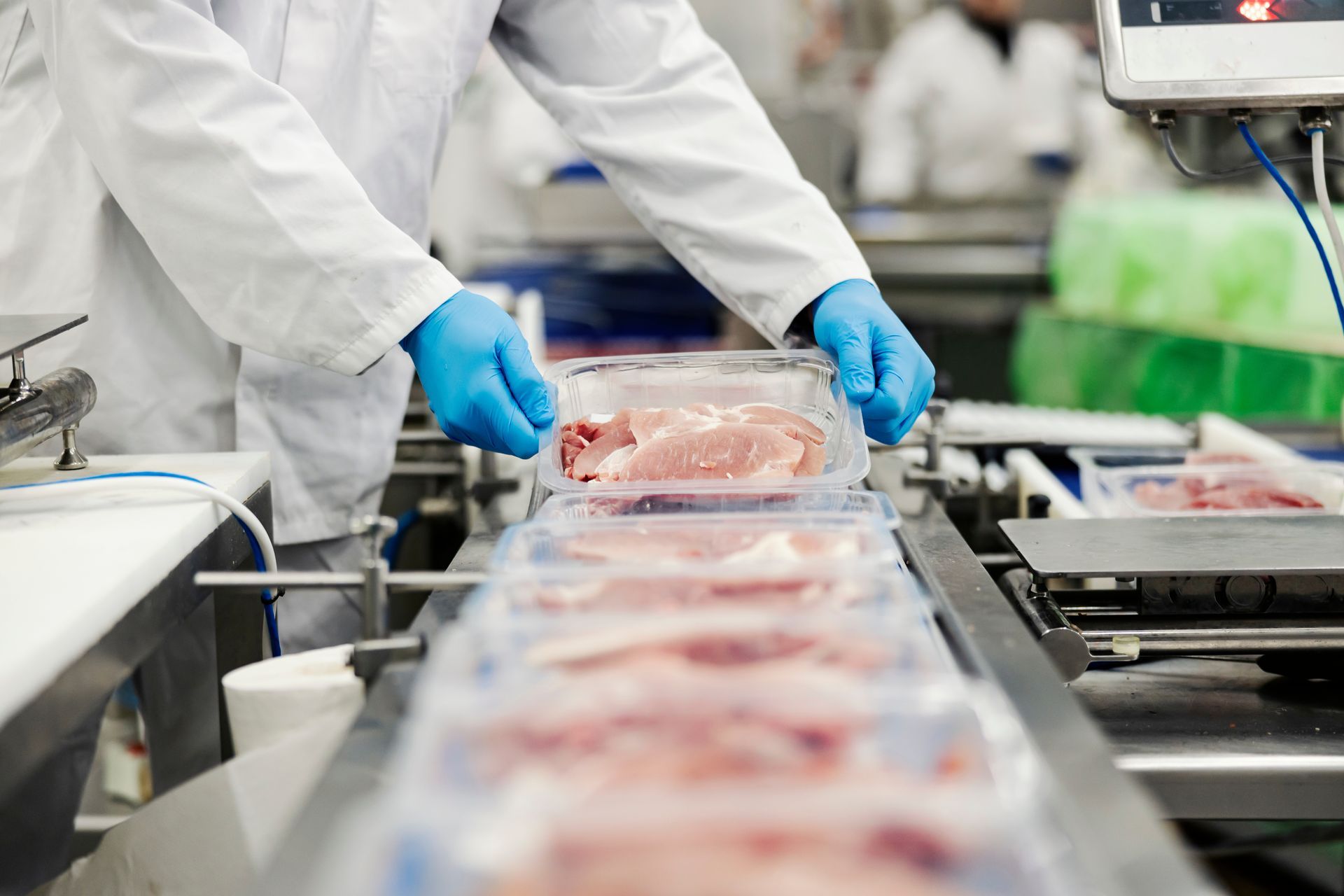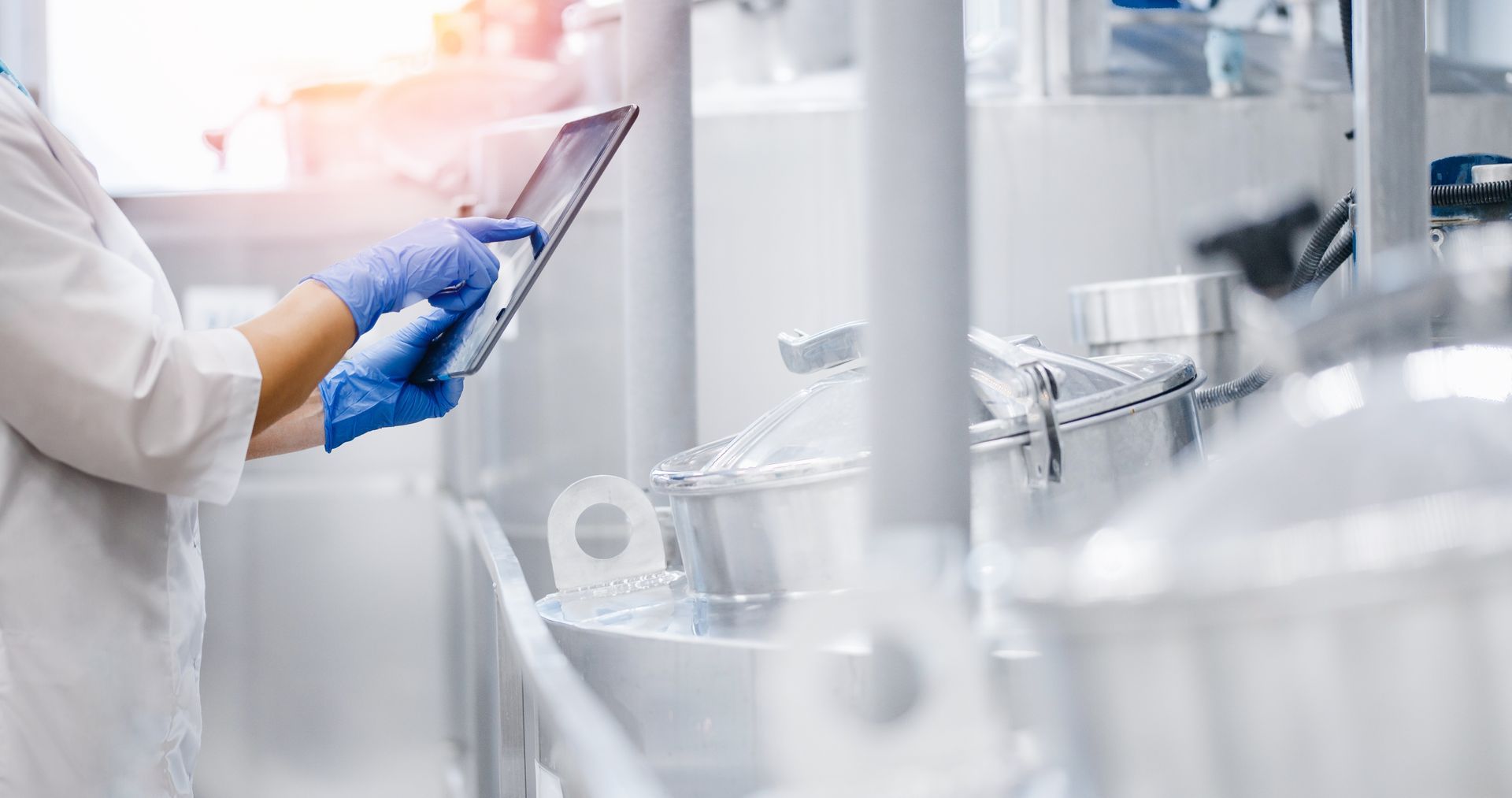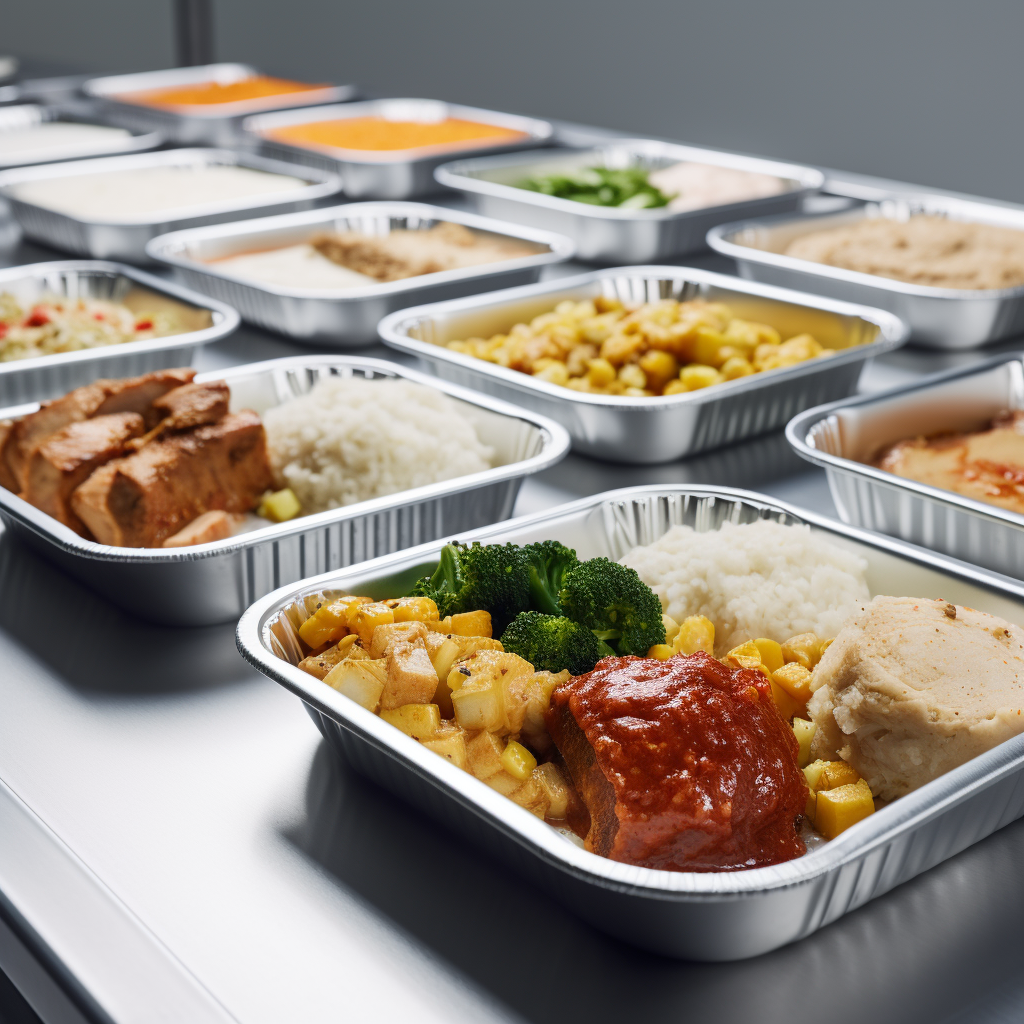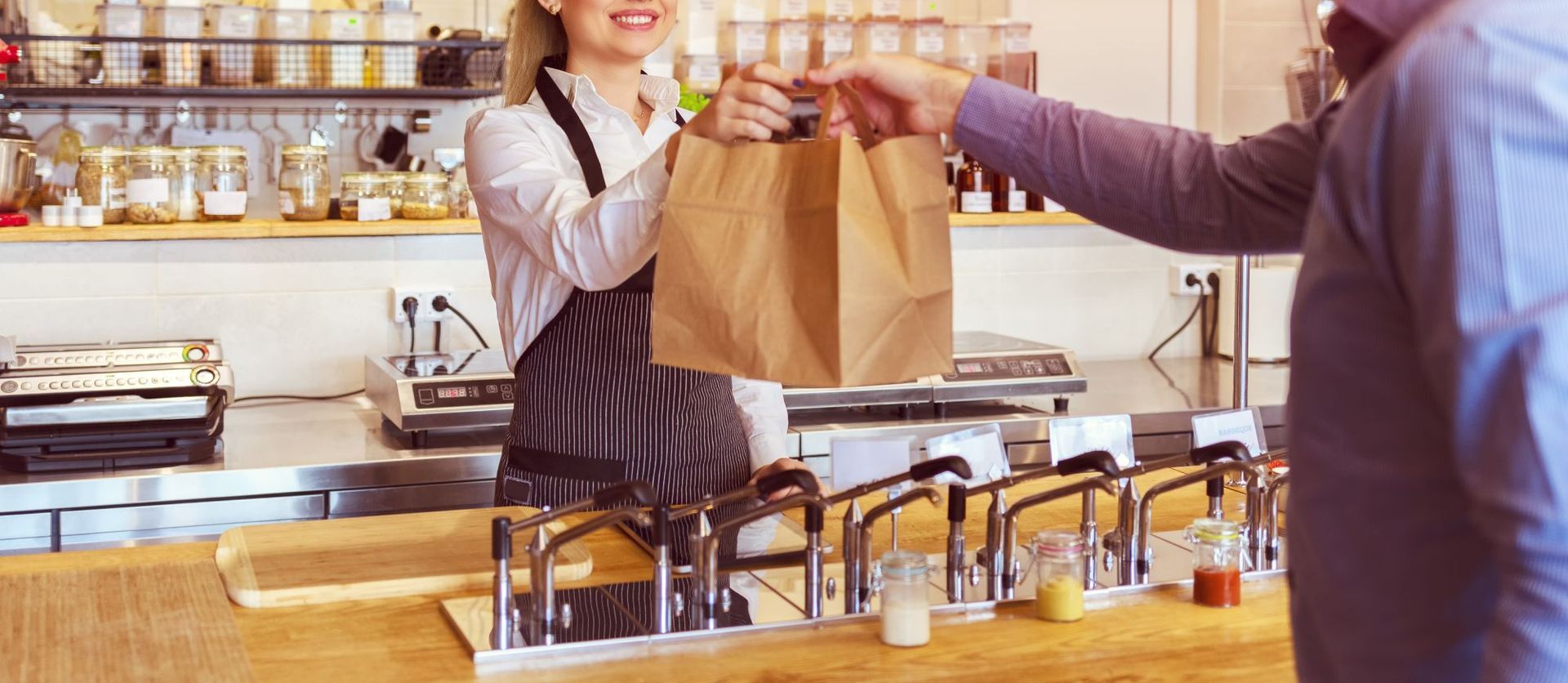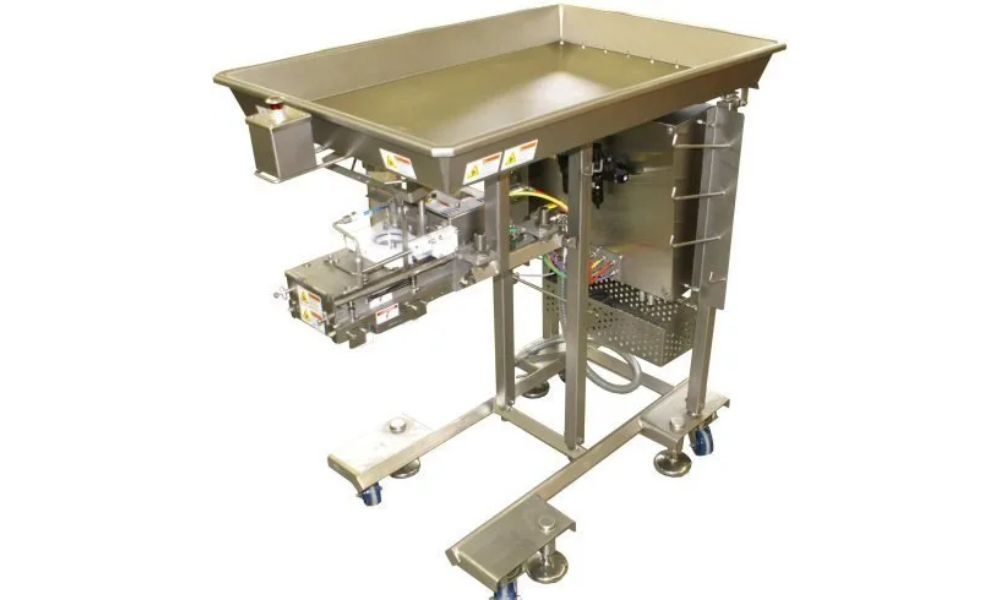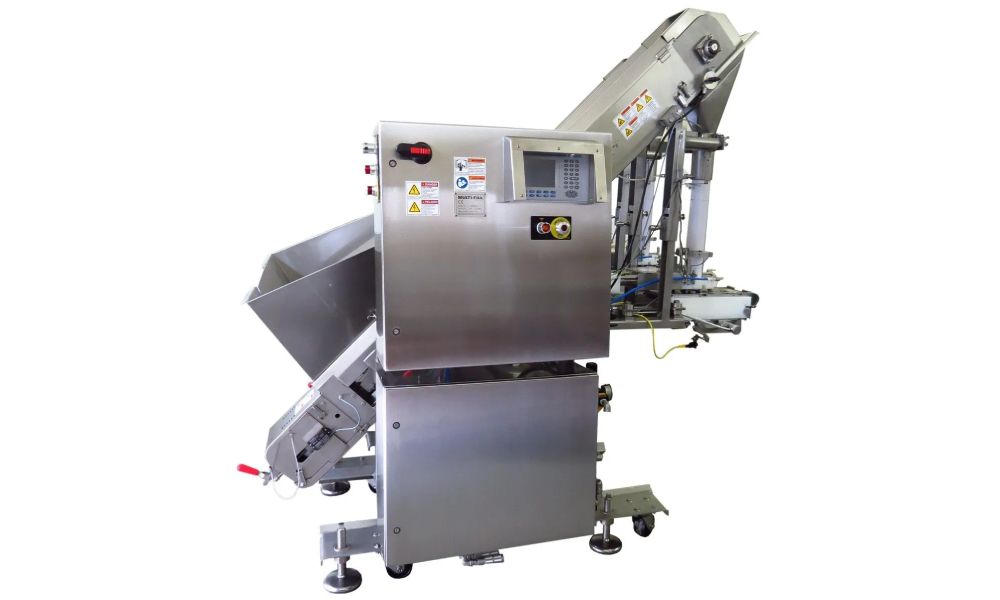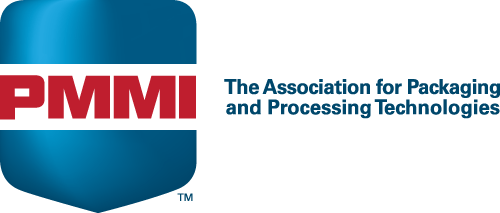Volumetric filling machines vs. liquid filling machines
One of the most common questions people ask when they start building a food filling line is whether they should use volumetric filling machines or liquid filling machines. Both types have their merits, but there are good reasons to choose one over the other depending on the nature of your product and other factors. Let’s examine how the two different types of machines work and discuss their relative benefits.
How a volumetric filler works
Volumetric filling machines fill containers with a consistent volume of the product using a time-based or weight-based principle. Regardless of the sizes and shapes of your containers, the filling machine will dose precisely the same volume of the product each time. There are three different types of volumetric fillers: gravity, pump, and piston fillers.
How a liquid filling machine works
Liquid filling machines work on the opposite principle to that of volumetric ones. Whereas volumetric machines will fill exactly the same volume of product regardless of the size of the container, a liquid filling machine will fill each container to exactly the same level in your containers, irrespective of the volume of product being dispensed.
Which filling machine should you choose?
As their name suggests, liquid filling machines are ideal for applications that involve beverages and other liquids. Volumetric machines work better for solid or viscous substances. This is a general rule and may not always apply, but, on the whole, volumetric machines are the best options for food filling. Volumetric fillers are faster, cheaper, and easier to use than liquid fillers or other options, such as gravimetric filling machines.
Multi-Fill has engineered a range of volumetric filling machines that can be customized to suit any filling line:
- The MPFMP-060 is a volumetric filler ideally suited for lower-speed production lines, research and development labs, and pilot plant operations. The product is loaded onto the top pan and manually fed to the filling tube by an operator.
- The MPFSH-075 fills 60 to 75 containers per minute. It can be upgraded to an MPFSC-120 for increased speed and/or different products at a later date. The MPFSH-075 is recommended for applications where more automatic product feeding is required. It is suitable for lower speeds, easier (looser) products, and smaller fill weights.
- The MPFSC-120 is our high-speed machine, which fills up to 120 containers per minute. It is recommended where not only more automatic feeding of the product is required, but also where the capability for higher speeds, stickier products, or larger volumes are needed.
Contact us for more information on our volumetric filling machines.
New Paragraph
Designing a food filling line: Product is king
